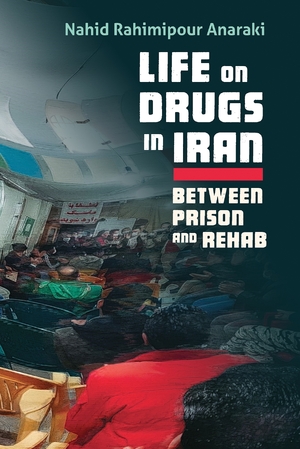"An important book because it comes as close to objectivity as is probably possible in a subject area where even the most scholarly works are heavily slanted. . . . Represents a great advance. . . . Recommended for all classes of libraries."—Choice
"Morgan usefully scrutinizes the relationship between drugs , users, and society's response to them. . . . Meticulously researched and scrupulously neutral in tone: a solid, intelligent work altogether, with a range of applications."—Kirkus Reviews
"Although intended for the general reader, Morgan's extensive note material will be a boon to scholars in this field. . . . Highly recommended."—Library Journal
Description
Only in the last hundred years have the realities of drug use in America—particularly of opiates, chloral hydrate, cannabis, cocaine, and the chemical drugs of the twentieth century—run counter to a growing country’s image of itself as rational. efficient, and independent.
In the early and mid-nineteenth century the image of the prescribing physician as a reliable figure of authority and knowledge, and the widespread use and sanction of opium, “God’s own medicine,” masked the dangers of addiction and drug abuse. But spreading addiction, especially among women, infants, and physicians themselves; visible, debilitating effects on users; and racial stereotyping— the Chinese
with opium, and later blacks with cocaine, and Mexicans with marihuana—challenged late nineteenth-century America’s vision of a healthy and productive society.
Drawing upon a wealth of untapped primary resources, Morgan traces changes in the popular attitude toward drug use over the past two centuries; the rise of legal restrictions; the prolific “cure” business; the idea of drug use as enslaving, unamerican, and unpatriotic; and from the 1920s to the 1950s the linking of drugs with a new spirit of social rebellion.
Table of Contents
Preface
1. God's Own Medicine
2. The Therapeutic Revolution
3. The Habitués: The Nineteenth Century
4. Society and the Habitués
5. Cures and Treatments
6. Regulation
7. Society Withdraws: The 1920s to the 1950s
8. A New Problem
Notes
Bibliographical Essay
Index
About the Author
H. Wayne Morgan is George Lynn Cross Research Professor emeritus and former chair of the department of history at the University of Oklahoma. He is the author of several books including William McKinley and His America.
6 x 9, 248 pages, 22 black and white illustrations
August 1982




